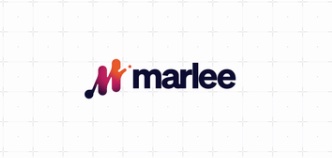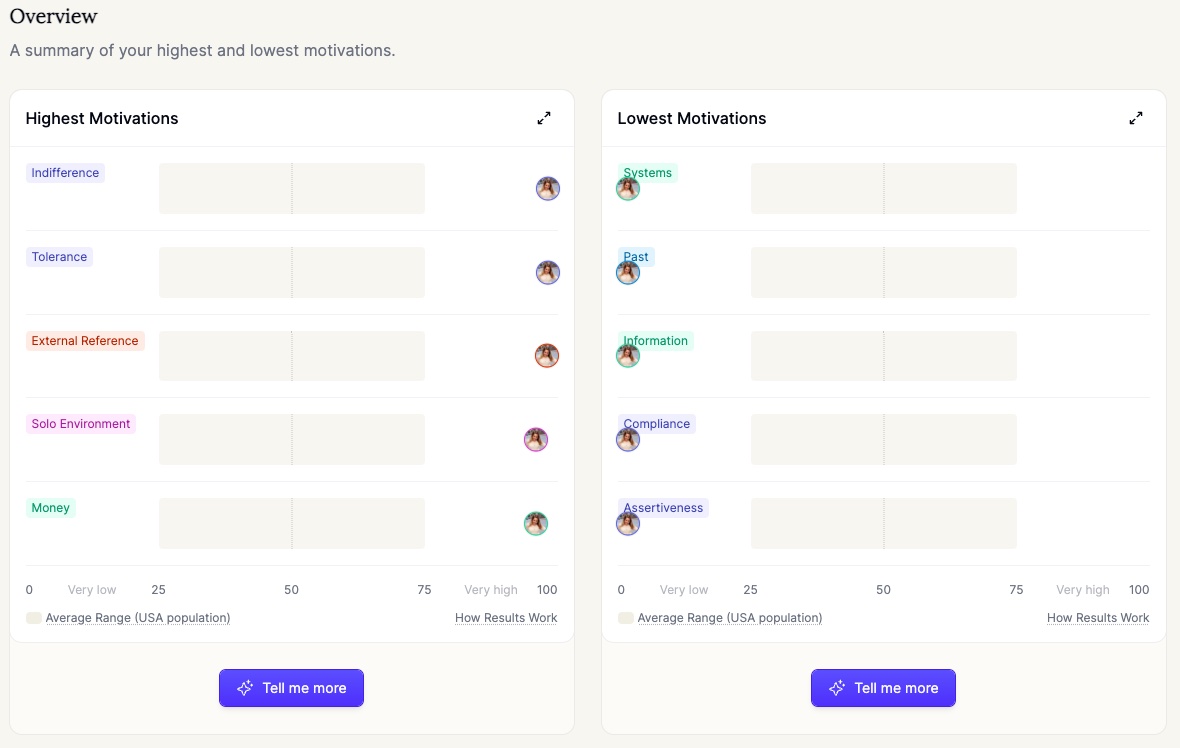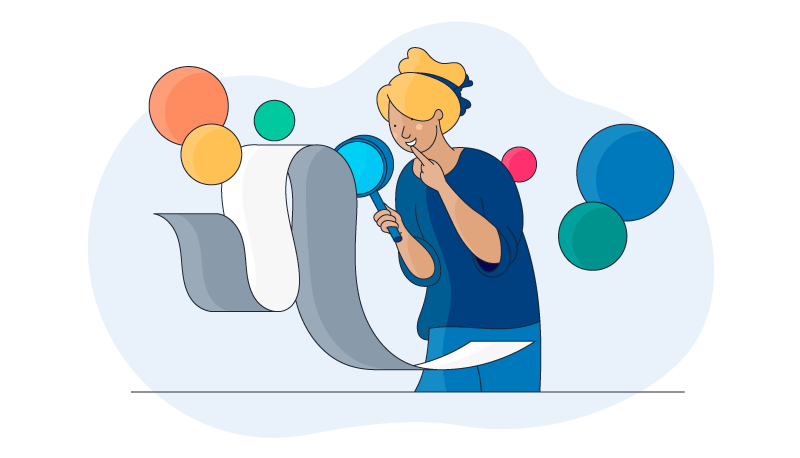7 Best mental health chatbots to support your well-being
Looking for a supportive AI companion on your mental wellness journey? We've carefully evaluated the most effective mental health chatbots, comparing their unique approaches, evidence-based methods, and real user experiences to help you make an informed choice.
- Author
Michael Metcalf

What do mental health AI chatbots do?
Mental health chatbots are Artificial Intelligence (AI) designed to help you with your mental health.
You can access their online services through websites or mobile apps, usually for a small subscription fee. You type your questions and comments into a text box (like in any messaging app), and the 'bot' responds to you almost immediately.
They aim to do a similar job as therapists or coaches, but humans do not immediately operate them. While their advice is backed by science, a computer will respond to you. It's usually in the form of a friendly character to make it easier to connect with.
Today's mental health chatbots can provide support and advice. They track your responses over time and offer coping strategies for when you're feeling down. They can also connect you with mental health resources, such as hotlines and support groups. Mental health chatbots are not a replacement for in-person therapy. They are suited to help with moderate symptoms and can be an excellent addition to professional support services.
What issues can mental health chatbots help with?
Mental health chatbots can help with a variety of mental health issues, including mild anxiety, depression, stress, and addiction. If you're struggling with any of these issues, a mental health chatbot could be a helpful tool for you.
They can help you develop emotional well-being and coping strategies in stressful situations. In this way, they can act as a coach, encouraging you to step outside your comfort zone or build helpful habits over time. Using an artificial intelligence chatbot isn't the same as talking to a human therapist face-to-face.
On one hand, for some people, it can seem impersonal - at least in theory. You don't get the advantage of being able to read the other person's body language (and the chatbot can't read yours). Maybe a bot will be able to scan your body language through your webcam - a cool idea for some people, but an intrusive one for others.
On the other hand, the AI and data-crunching capabilities behind many of today's chatbots are impressive. They can talk to you in ways that were unimaginable just a few years ago. They're backed by deep scientific research and are almost always developed by qualified researchers and practitioners from various psychological science disciplines. The information combines medical expertise, technological wizardry, and an easy-to-understand presentation. So, while you won't have a live therapist, these apps will surely give you some wisdom that can make a positive difference in your life.
Chatbots aren't meant for a mental health crisis
Chatbots aren't designed to be used in an emergency for crisis intervention. If you're dealing with symptoms of mental illness or considering self-harm of any sort, these won't be appropriate for your needs. Some therapy chatbots might refer you to appropriate resources, like mental health services, traditional therapy, government healthcare providers, or registered support organizations.
As an example, if you're generally feeling more sad or apathetic than usual and are experiencing other symptoms of depression, a chatbot could be a good starting point. It can help identify your challenges and provide suggestions for alleviating some of the symptoms. If you're currently going through a serious depressive episode and you need immediate help, you should seek advice from a mental health professional straight away, instead of using an app.
Trends in the use of mental health chatbots
With a global shortage of mental health workers, when you need support, it's often not readily available.4 Mental health organizations are understaffed and overworked.5
Many people are unable to access or afford mental health services. Barriers to access often include a lack of available therapists, transportation, insurance, money, and even time.2
This is where mental health apps can help.
They are a great option due to their affordability. Plus, an internet-based intervention can be used from any location. And unlike real people, they're available for daily therapy sessions at noon or midnight. When using a research-backed app, the chatbot will be personalized and reliable.
Some people even point out that therapy chatbots are the only realistic and feasible way to support the worldwide need for mental health care.2, you use a reputable source
Choosing the right mental health chatbot
It's important to make sure that if you decide to try AI-powered chatbots, you use a reputable source backed by science and research. The user interface should be visually appealing and functional, with conversational options to support user engagement.
Some apps make bold claims about their results but haven't been independently verified with proper research. Others showed promising testimonials in their marketing material, but when you look at their user engagement reviews, users don't feel the same way.
Some are made by app developers whose bots only have basic functionality. They don't have much 'artificial intelligence.' They simply route users toward different resources and act more like customer service agents. These are ones to be wary of. Their creators may be experts in AI and app development, meaning there won't be many technical issues. However, they don't have the medical care, ethical concerns, or psychotherapy credentials to back up the advice that they give.
The best mental health chatbots available right now
With so many popular chatbots, choosing which one is right for you can be hard.
Marlee

Marlee is an AI coach based on more than 20 years of scientific research. Marlee helps you understand your motivations and work styles to support you in performing at your best in work and life.
It could be a fantastic fit for you if you're looking to go from good to great and elevate your mental performance in all aspects of life.
Marlee developed the world's first AI coach to help you to achieve your goals. Marlee delivers user-friendly personalized online coaching programs based on your personal motivations and goals.
Marlee has a fun, encouraging personality that brings out your best. With friendly check-ins throughout your coaching programs, Marlee helps you understand your own development in ways you might not have encountered before. The questions Marlee asks might be deeper than you expect, challenging you to reflect on yourself and step out of your comfort zone—one of the best ways to grow.
Marlee even has a Vital Wellbeing program to support mental health. In this effective nine-week program, Coach Marlee will help you to increase your energy, vitality, and general well-being. It will help you to break through self-sabotage and develop lifelong skills for emotional resilience and self-esteem.
To get started, answer questions on what motivates you. You'll receive an instant report, which is more than 90% accurate and measures 48 key motivational traits. These traits will help you understand what drives you and show you areas for self-growth.

A Marlee "My Results" board
Then, with the help of Marlee, you can set a goal and see the best coaching programs available to ensure you achieve success. Plus, coaching sessions are completely flexible. Marlee is available on demand - so you can pick the time and place that is most convenient for you.
Marlee's expertise can support individuals and can be scaled out for teams and organizations.
While Marlee is an advanced chatbot, it can't replace an actual therapist or mental health professional. Since the coaching approach focuses on behavioral change, it can help you identify your needs and give you the tools and support you need to improve your mental health.
One Marlee user reported:
"I forgot that it was AI. I honestly felt like I was talking to somebody. It's very soulful."
In chatting with AI coach Marlee, you'll go on a journey of self-discovery and personal growth.
Woebot Health
Woebot is a chatbot that uses Cognitive Behavioral Therapy (CBT) techniques to help people manage their mental health. It's designed for daily therapy sessions and specifically targets symptoms of depression and anxiety, including postpartum depression.
Woebot is based on the premise that talking to somebody about how you're feeling - even if that somebody isn't human. It can help you understand and manage your emotions better. Each day Woebot starts by asking how you're feeling, and then it will give you activities or challenges to do. These are mostly cognitive behavior therapy exercises around specific topics like anxiety, depression, relationships, or sleep.
You can also ask Woebot questions about anything that's troubling you. It'll reply with helpful information and advice.
Woebot is best for people who want to learn more about cognitive behavior therapy techniques to manage mental health issues. Studies have shown promising results so far for users (although these studies were funded by Woebot's creators)3.
If you're looking for an AI bot that can provide immediate help or support in a mental illness crisis, like most chatbots, Woebot is not really the right fit. But if you want a chatbot that will teach you how to manage your emotions better over time, Woebot might help.
Wysa
Wysa is another mental health chatbot that uses cognitive behavioral therapy techniques to help users manage their mental health.
They offer self-help tools so you can reframe your issues and see them in a different light. It's designed to be a non-judgemental mental health space where you can share your concerns. Wysa is outspoken about its privacy and security. They reassure users that their conversation history is 100% private and won't be seen by anyone other than the bot.
Wysa membership also provides access to a library of educational self-care material. Topics include relationships, trauma, and loneliness, among others. It helps you go deeper into the topics that matter to you so you can apply the knowledge to your own situation. With the premium subscription, you can interact with qualified professional therapists too. You can exchange messages and have regular live text chats. They also offer business solutions for employers, with some extra features for teams. It will look for signs of crisis or people who require extra support. Then it redirects them to resources like EAP, behavioral health providers, or even a crisis helpline.
Wysa's positive app store ratings mean it's been well-received by businesses and individuals.
Youper
Youper is a mental health chatbot app that uses Cognitive Behavioral Therapy and Positive Psychology techniques to help users manage their mental health. Youper is one of the market leaders in 'digital therapeutics'. It helps users deal with anxiety and depression through smart AI and research-backed interventions.
Youper provides three main services. First, it offers a conversational bot that listens to and responds to users. Then it uses 'just-in-time interventions' to help manage emotional challenges whenever and wherever it's needed. Lastly, they have a learning system that personalizes recommendations based on individual needs.
Youper proudly advertises its clinical effectiveness, having been founded by doctors and therapists working alongside AI researchers.
It's another app that combines self-assessments and chatbots with a platform for talking to licensed professionals. It also measures results and success over time, so it rewards those who stick with it and are invested in their results within the program.
Human therapists as alternatives to therapy chatbots
Some of the apps we've mentioned combine AI chatbots with the option to talk to mental health care professionals or therapists. This is a nice option to have and can potentially provide a more in-depth experience. Although it will have additional costs.
Some apps focus solely on the 'live chat with a therapist' experience. While they can be expensive, many are included in insurance plans. Some are offered at work as part of an employee benefits program.
Some of the human-based therapeutic mental health apps you might be interested in are:
Talkspace
Talkspace is a super popular online therapy provider. It connects users with a network of licensed therapy providers, each with a different specialty. It also has services for couples or teens. Talkspace claims that 59% of users experience 'clinically significant change' within 3 months of starting their program.
Ginger
Ginger offers text- and video-based psychiatry sessions with evening and weekend availability. It focuses on behavioral health coaching, therapy, and psychiatry, and also has a content library of self-help material. Ginger is available for organizations, individual members, and healthcare providers.
7 Cups of Tea
This one's a bit different. 7 Cups of Tea is a mental health app that lets members connect with over 300,000 trained and certified 'listeners' - it's all about being heard. Listeners have specialties including addiction, grief, anger management, depression, anxiety, impulse control, eating disorders, chronic pain, and more. As a free service, it's a great offering for those wanting to talk about their issues to a sympathetic ear and get some really valuable advice. There's also a paid part of the service that connects you to a licensed therapist to explore your concerns further.
Do you need a mental health chatbot or a real therapist?
Now that you know more about therapy bots, and which ones are the best, you might be wondering if they can provide the mental health services you need.
Mental health chatbots can be a great way to get support and advice right when you need it, without having to see a therapist or counselor in person. They can also be a great way to supplement your existing mental health treatment plan.
If you're not sure if a mental health chatbot is right for you, ask yourself the following questions:
- Do I want to learn more about my mental health?
- Do I want to either address mental health conditions or develop my coping strategies and resilience?
- Do I want a way to track my mood and progress over time?
- Do I want to be able to get support and advice when I need it, without having to see a therapist or counselor in person?
- Am I in a relatively stable situation (not undergoing a crisis)?
If you answered yes to any of these questions, then a mental health chatbot could be a great option for you. Commitment is usually fairly minimal, with free trials and low monthly subscription plans as standard. Why not give it a try and see what works best?
❤️ Start for free with Marlee today.
References
- Our World in Data. (2021) Mental Health. Available at https://ourworldindata.org/mental-health
- Noguchim Yuki. (2023) Therapy by chatbot? The promise and challenges in using AI for mental health. Available at https://www.npr.org/sections/health-shots/2023/01/19/1147081115/therapy-by-chatbot-the-promise-and-challenges-in-using-ai-for-mental-health
- New York Times. (2021) Something Bothering You? Tell It to Woebot. Available at https://www.nytimes.com/2021/06/01/health/artificial-intelligence-therapy-woebot.html
- National Library of Medicine. (2020) Effectiveness and Safety of Using Chatbots to Improve Mental Health: Systematic Review and Meta-Analysis. Available at https://www.ncbi.nlm.nih.gov/pmc/articles/PMC7385637/
- Counseling Today. (2023) A closer look at the mental health provider shortage. Available at https://ct.counseling.org/2023/05/a-closer-look-at-the-mental-health-provider-shortage/


